- Home
- William Bell
Zack
Zack Read online
Other books by William Bell
* * *
Novels
Crabbe
Absolutely Invincible
Five Days of the Ghost
Forbidden City
No Signature
Speak to the Earth
***
Children’s books
The Golden Disk
River, My Friend
Contents
Cover
Other Books by This Author
Title Page
Dedication
Part One
Chapter 1
Chapter 2
Chapter 3
Chapter 4
Chapter 5
Chapter 6
Chapter 7
Chapter 8
Chapter 9
Chapter 10
Chapter 11
Chapter 12
Part Two
Chapter 1
Chapter 2
Part Three
Chapter 1
Chapter 2
Chapter 3
Chapter 4
Chapter 5
Chapter 6
Chapter 7
Chapter 8
Chapter 9
Chapter 10
Chapter 11
Part Four
Chapter 1
Chapter 2
Chapter 3
Chapter 4
Chapter 5
Chapter 6
Appendix
Author’s Note
Acknowledgements
Copyright
For Ting-xing Ye
like gold to aery thinness beat
PART ONE
Chapter 1
“You can never place your foot into the same river twice,” my dad often reminded me, quoting some ancient Greek philosopher with an unpronounceable name. I wondered as I scraped the sole of my high-top on the spade’s edge if the same wisdom applied to stepping in dog droppings. Between our new house and the row of cedars that fringed the river, the dry brown grass was littered with revolting little piles of fossilized puppy poop that had magically appeared as the snow thawed.
Scooping dog doo-doo pretty much summed up the way I felt about moving to that place. The house itself was all right. Under torture I would have admitted that it was better than our cramped two-bedroom apartment in the city. I had a decent room on the second floor with a big window looking over the yard, but that wasn’t much consolation. I was used to going to school through the rumble and snarl of traffic, sidewalks teeming with people rushing past restaurants, pool halls, video arcades and head shops. I had travelled on a city bus jammed with faces of every colour and humming with languages from around the world. Now each morning I stood like a stump at the end of our unpaved driveway waiting for the big yellow monster to swallow me up and transport me to Boredom High School. I had been dragged from a major street in the biggest city in the country to the edge of the known universe, a rural route in Garafraxa Township—the name sounded like an incurable skin disease—with a chicken farm at the dead end, on the outskirts of a no-place village called Fergus where, as near as I could tell, the locals’ idea of a good time was trying on gloves at the department store or watching the blue light revolve on the top of the snow plow.
There was nothing funny about being the only child of two stubborn parents who had decided to leave the city and do the pioneer thing among the trees. I had visions of alfalfa sprouts and seeds for lunch, Mom weaving her own cloth, Dad dressed in a tartan bush shirt and faded jeans, chopping kindling and spitting black tobacco juice.
“It’s a great opportunity for your dad,” my mother had told me a year ago, after she dropped the bomb. “He’ll be chair of the department.”
“Your mom has never liked the city,” Dad had said in a different conversation. “She can set up a recording studio in the house, like she’s always wanted. And have a garden.”
Two against one. What the kid wanted didn’t count. For months I ranted, sulked and threw things around my room. On purpose I flunked two courses. I ran away for three days. We moved anyway. And now, here I was in the back yard, Zack Lane, Canine Feces Remover.
Chapter 2
I knew from the sour smell that Jenkins had sneaked up behind me just as the download was completed, and that he had seen me eject the diskette and slip it into my shirt pocket.
“Let’s have it, Zack,” he commanded, his voice betraying a hint of triumph.
I clicked the mouse and blanked the screen. “Um, what’s wrong, sir?”
“You know what.”
“It’s just my own personal disk,” I said. “It’s, you know, confidential.”
“Nice try.”
“I can explain.”
“I’m not interested. Let’s have it.”
I took the diskette out of my pocket and passed it back over my shoulder.
“Stick around at the end of the period.”
Outside the dirty window of the computer lab on the second floor of the school a fine rain fell out of a low grey sky. Our geography class had spent the last hour pulling down weather maps from some satellite or other so we could watch bright green meteorological patterns flowing amoeba-like across the blue map on our screens. That is, most of us had. On one side of me a skinny guy who had just returned from a three-day suspension was painting hearts with initials in them on his binder with white correction fluid. On the other, a girl sporting purple hyper-extended false fingernails urgently explained to her friend why she “absolutely hated” her own hair.
I already knew it was raining so I connected to the Internet and surfed for certain information I was after. It had taken me most of the period to find some good stuff, almost oblivious to the clickety click of keyboards and mice and the hum of conversation.
Going “off task” hadn’t been difficult because Jenkins had spent most of the period with his sleeves rolled up, hunched over his cluttered desk marking tests and pumping out the b.o. Short, rotund and an early victim of pattern baldness, he was best known for the stale body odour that enveloped him like a damp fog.
As my classmates filed out of the room, some casting curious glances my way, Jenkins tightened the tie he had worn for five days running and slipped on an old tweed jacket.
“Meet me in Ms. O’Neil’s office after last class, Zack. And bring your computer-use contract with you.”
An hour and a half later I plowed through the noisy chaos of the halls to the principal’s office, more irritated than worried. O’Neil would probably give me a reprimand and revoke my computer privileges. Unauthorized downloads were treated seriously by the school. I didn’t blame them. There was all sorts of disgusting crap available on the Net and the school didn’t want us finding, seeing or downloading it and corrupting ourselves. If you got caught, you’d lose your login and could only use computers for word-processing and spreadsheets and stuff—unless you had a friend who would let you use his login, which I didn’t. The truth was that the school had about as much success controlling Net access as it did preventing the drug trade.
When I got to the reception area and reported to the secretary I was ushered into O’Neil’s inner office as if I held expensive tickets to a concert. O’Neil was a middle-aged woman, tall and slender with greying hair, casually dressed in slacks and a white blouse. I hadn’t had dealings with her since she registered me on my arrival months before. At that time she had been all smiles. Now she frowned with that look of momentary concern that teachers are good at.
She sat in a leather chair behind an expansive wooden desk. Jenkins occupied a chair beside her.
“Put your contract on the desk and take a seat, Zack,” O’Neil said, then picked up the phone and punched in a number.
I tossed the paper onto her desk blotter and lowered myself int
o a chair. Jenkins looked out the window, then examined his knuckles. The three of us sat like that for a while. O’Neil finished her conversation and put down the phone. A second later it buzzed. She picked it up, listened, then said, “Fine, Laura. Send him in.”
The principal rose from her chair, eyes on the door. When it opened her eyebrows rose in surprise. She shot a quick look at me, rapidly composed herself, smiled and purred, “Mr. Lane? Come in, please.”
She had, naturally, assumed my father would be black. Surprise, surprise, Ms. O., I thought.
My father walked into the room with the graceful ease of an athlete. He was wearing a cardigan over a white cotton shirt, tan cords and loafers—his usual academic garb. When the introductions were made and hands were shaken he took the remaining chair. He looked vaguely irritated, the way he did if I interrupted him when he was writing a paper or making notes in his cramped, neat handwriting, deep in concentration, surrounded by stacks of books and periodicals with slips of yellow paper sticking out from between the pages.
Bringing my father in was going a little too far, but I kept my mouth shut. It might be fun, I thought, to see how this little drama plays out.
“Mr. Lane,” O’Neil began, her composure regained, “we’ve called you in because we feel we have a rather serious problem on our hands.”
She paused to heighten the drama. Slowly, Jenkins’s odoriferous presence made itself evident. He studied his knuckles some more. My father crossed his legs, ankle on knee, and fiddled with his shoelace.
O’Neil removed a diskette from her desk drawer and placed it on her desk as if it was Macbeth’s bloody dagger. Nodding towards the computer notebook on the corner of her desk, she said, “I’d like you to see the material that your son captured from the Internet this afternoon when he was supposed to be … what was the lesson today, Mr. Jenkins?”
“Er, weather patterns,” Jenkins replied solemnly. “Through the satellite link.”
O’Neil popped the disk into the laptop and turned it so Dad could see the screen. She scrolled slowly through the pages, giving him lots of time to get the picture.
The first page showed the front of a pamphlet. The Jewish Conspiracy: The Truth Will Out!!! by Ernst Krupp.
“Significant name,” my father muttered, drawing a blank look from O’Neil. I had no idea what he meant either, but I was used to him making cryptic comments when something going on around him connected with something he was thinking about.
Next on the screen came a photo of a middle-aged man with thick grey hair and a florid complexion, wearing some kind of military cap with a logo on it. He stood in the centre of a small crowd and someone was holding a megaphone to his mouth, which was wide open. It was summer, and trees almost hid the courthouse behind him. Mr. Krupp tells all in his trial, the caption under the picture read. The following pages of dense print were headed The Lie About the Holocaust That Never Happened!!
“You get the idea,” O’Neil said, removing the diskette and shutting down the laptop. She closed the lid firmly.
“Ms. O’Neil, I’m not sure I understand why you’ve called me away from my work,” my father said calmly. “You said something on the phone about Zack breaking a computer-use contract—”
O’Neil seemed put out that Dad hadn’t raged and foamed at the mouth when he’d seen the stuff I’d downloaded. “Well, yes. We ask that all students sign a contract before they’re issued a password and login. The contract requires—”
“I’m familiar with the concept. We have the same policy at the university.”
“Indeed. Then you’ll agree with our rule against accessing information of an obscene or hateful nature. Zack copied this … this material on the sly. It’s obviously neo-Nazi garbage. Wouldn’t you agree?”
“Certainly.”
“To be frank, Mr. Lane, we’re always worried when we see this kind of thing. Aside from Zack’s own opinions”—she spat out the word like a piece of rotten meat—“which, I suppose, he has a right to, I have the school’s reputation to consider. I don’t want the community to think that hate literature originated in this building.”
Dad’s voice was still calm and reasonable, a sign that he was getting angry. “Has anyone asked Zack why he wanted this literature?”
“I got it for you, Dad.”
Silence. Jenkins and O’Neil stared intently at my father, probably imagining him to be an aging skinhead who had recruited his son to his evil doings.
“I thought as much,” Dad said. He turned to me, a why-did-you-get-me-into-this-mess look on his face. “You shouldn’t have done it, Zack. I appreciate it; you know that. But now you’re going to lose your privileges here.”
“Let me see if I understand this,” O’Neil cut in, fire in her eyes and ice in her voice. “Your son has acquired fascist hate literature on your behalf and it’s okay with you? A load of anti-Semitic—”
“I’m a Jew, Ms. O’Neil,” Dad said.
For the second time, silence fell, and so did O’Neil’s jaw. Jenkins looked as if he was in the grip of a tremendous gas pain. He took another tour of his knuckles.
“But,” the principal spluttered, and she almost said it. I could practically see the words on her lips—You don’t look Jewish. Her blush showed through the make-up.
Dad’s diplomatic smile made a rare appearance. “Ms. O’Neil, I’m an instructor at the university. My specialty is contemporary social history—a sort of oxymoron, I know. Zack was just hoping to bring home material he thought I might be interested in. I can assure you he is just as offended by it as you.”
“Um, I see …”
“If you’ll forgive me for saying so,” he went on, “I think that if someone had simply asked Zack what he was up to, this misunderstanding could have been avoided.”
“Well.” O’Neil shot a withering glance at Jenkins, who was now fiddling with his tie. “You’re quite right. I’m sorry we’ve troubled you.” She straightened up in her chair and cleared her throat. “Considering the circumstances, we’ll overlook Zack’s transgression and reinstate his login.”
My father rose from his chair. “That won’t be necessary. Zack broke the rules, so he should be treated like anyone else.”
Dad shook hands with the principal and Jenkins again and left the office. I followed him out and he said a quick goodbye and headed for the parking lot.
Throughout that ridiculous little one-act play I had felt like a piece of furniture. But I was used to it—being on the outside of things. It was nothing new.
Chapter 3
My mother loved any kind of growing thing — except me, I sometimes felt—and my father loved my mother. By some kind of weird equation these two facts, when added, equalled me with a shovel in my hand and a job to do. The former owner’s dog’s gifts to the ecosystem had been collected and buried a few days before—by me, naturally—so I marched dutifully to the spot Mom had picked on the left side of the yard next to the wooden fence, where the land began its gentle slope to the river, and began to dig holes for three lilac bushes. Mom had given me very specific instructions on how deep and how far apart these excavations should be.
“You get the ground ready,” she had told me, “I’ll plant the lilacs, one white one, two purple.”
“Then can I use the truck?”
“When your dad and I get home.”
When lunchtime came I had dug one hole, collected a wheelbarrow full of various-sized stones, raised a blister on my left palm and stabbed myself twice in the foot with the spade. Time for a break. I stretched the kinks out of my back and plodded towards the house, my eyes peeled for wayward piles of digested dog food, and went into the kitchen. I popped open a can of iced tea and built a monster sandwich of sliced beef, cheese, pepperoni, mayonnaise and mustard on rye. Perched on a stool at the counter, I gazed out the kitchen window as I ate, admiring the results of my labour. Over the fast-flowing Grand River the sky was clear and a light breeze stirred the cedars.
By mid-afternoon
I had excavated a second hole and shoved another wheelbarrow full of stones down the river bank, scaring up a pair of ducks that had been floating peacefully in the current. The third and last hole was easy going for the first fifty centimetres or so, then the spade clanged against a rock. I dug around the obstruction, hauled it out and tossed it into the wheelbarrow. Unlike the others, it was black with carbon and soot and crusted with damp, powdery mortar. So were the next half dozen. Someone must have made a fire pit here, I thought, cursing whoever it was for their lack of consideration. I cleared the loose dirt from the hole and decided to go down another fifteen centimetres or so, widen the cavity and call it quits. I stabbed the spade into the soil, stepped on the flange, jounced my full weight on it, and heard the edge of the spade grind against something hard. Another rock, I thought. It clanked against the side of the wheelbarrow when I threw it in, but it wasn’t a stone.
The caked dirt fell away easily under the pressure of my fingers. I carried the heavy object to the side of the house and washed it under the hose. The remaining soil dissolved away from an axe head, caked with rust, the handle long since rotted from the slot, the edge dull and rounded. I hadn’t seen many axe heads in my city-boy life, but I knew from the unusual shape that this one was very, very old. I turned it over in my hands a few times, then dropped it by the kitchen door on my way back to the hole. The day wasn’t a total loss, but it was close.
My next spade-thrust brought a hollow thump. Now what? I got to my knees and picked up a triangle-shaped splinter of wood, bright on one side. I scooped dirt away with my hand, uncovering the corner of a box of some kind.
A half hour of painstaking soil removal passed, during which my interest perked with every handful of dirt I removed, before I was able to lift the box from the hole—carefully, because the wood was so soft with rot it almost fell apart in my hands. About the size of a shoe box, it had mortised corners and a lid that resisted my careful attempts to pry it off. I jogged to the house and returned with a kitchen knife, the ache in my back forgotten. I ran the blade along the dirt-clogged space between the lid and the sides of the box, working the soil loose, and finally the top broke free.

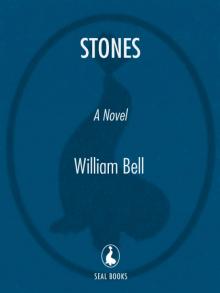 Stones
Stones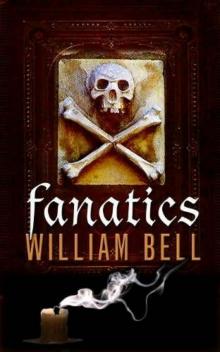 Fanatics
Fanatics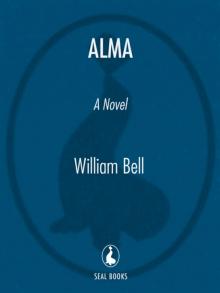 Alma
Alma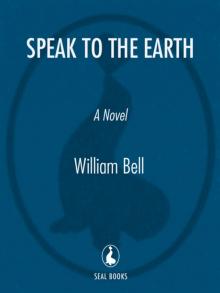 Speak to the Earth
Speak to the Earth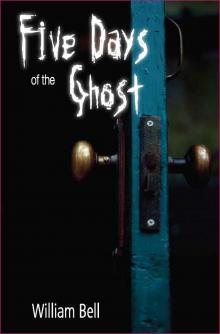 Five Days of the Ghost
Five Days of the Ghost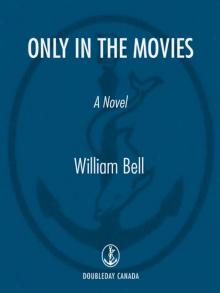 Only in the Movies
Only in the Movies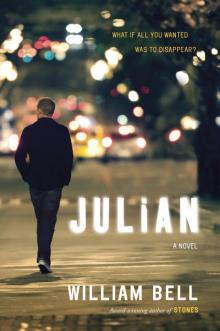 Julian
Julian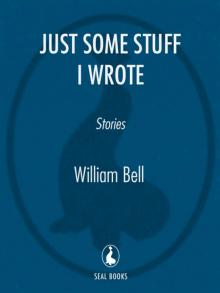 Just Some Stuff I Wrote
Just Some Stuff I Wrote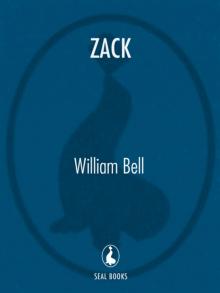 Zack
Zack Forbidden City
Forbidden City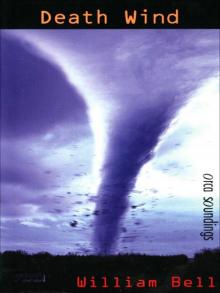 Death Wind
Death Wind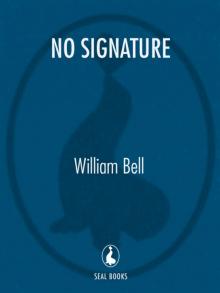 No Signature
No Signature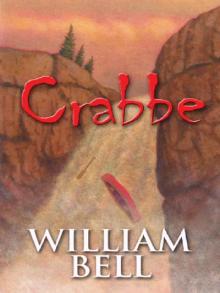 Crabbe
Crabbe